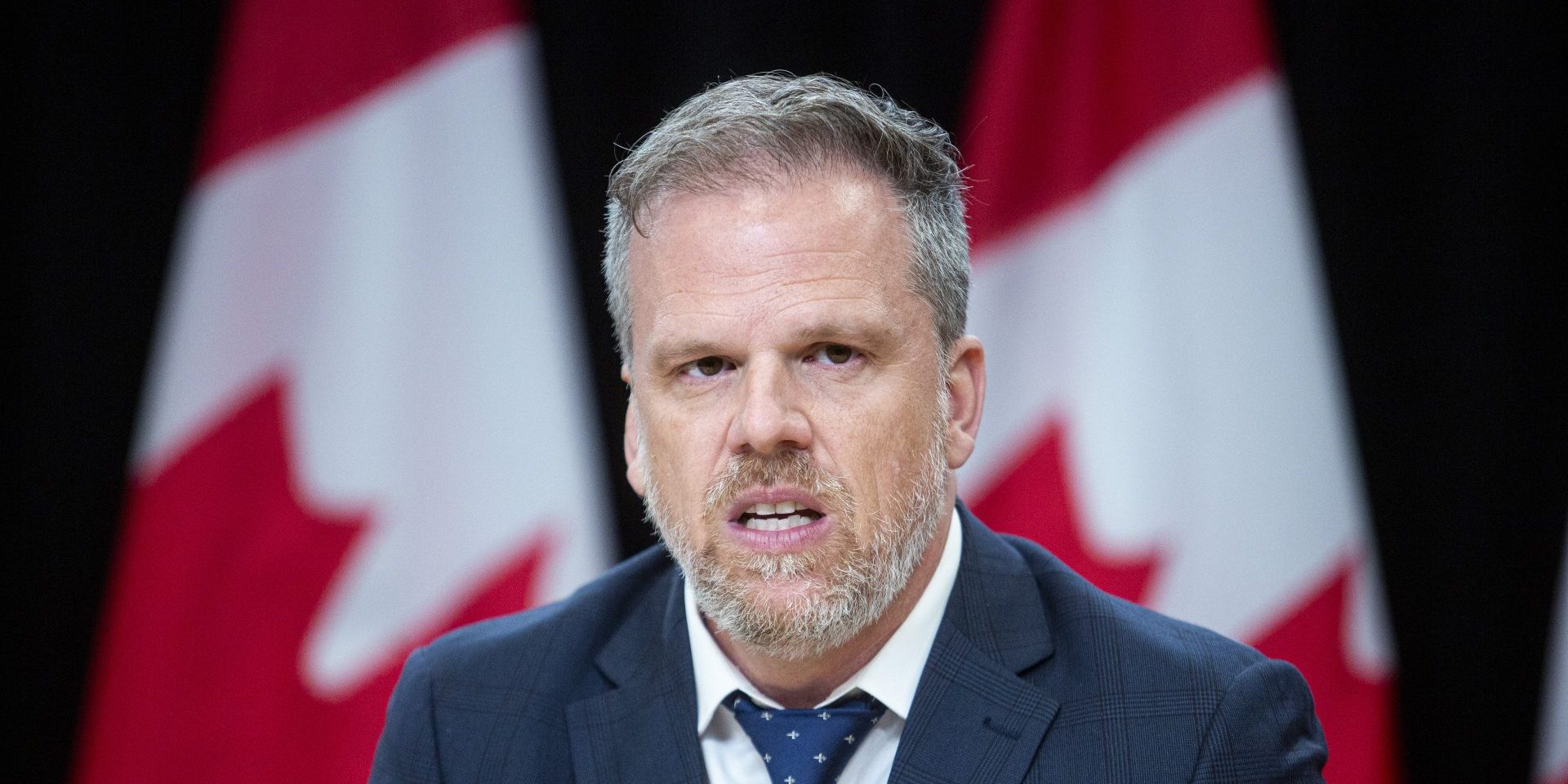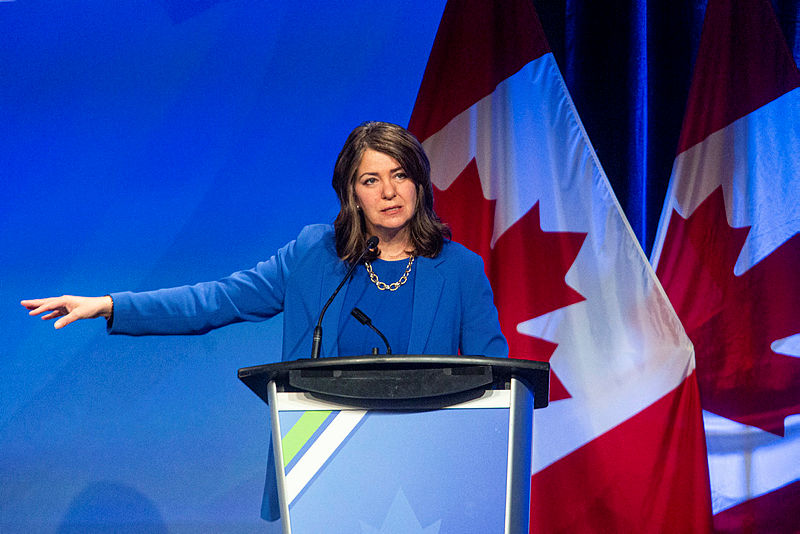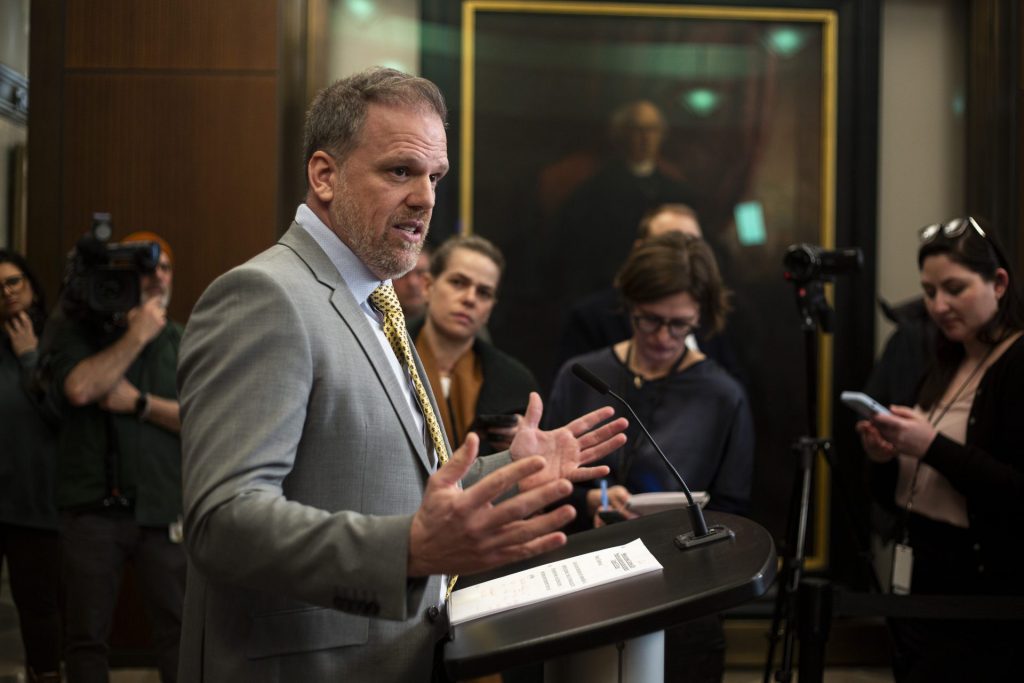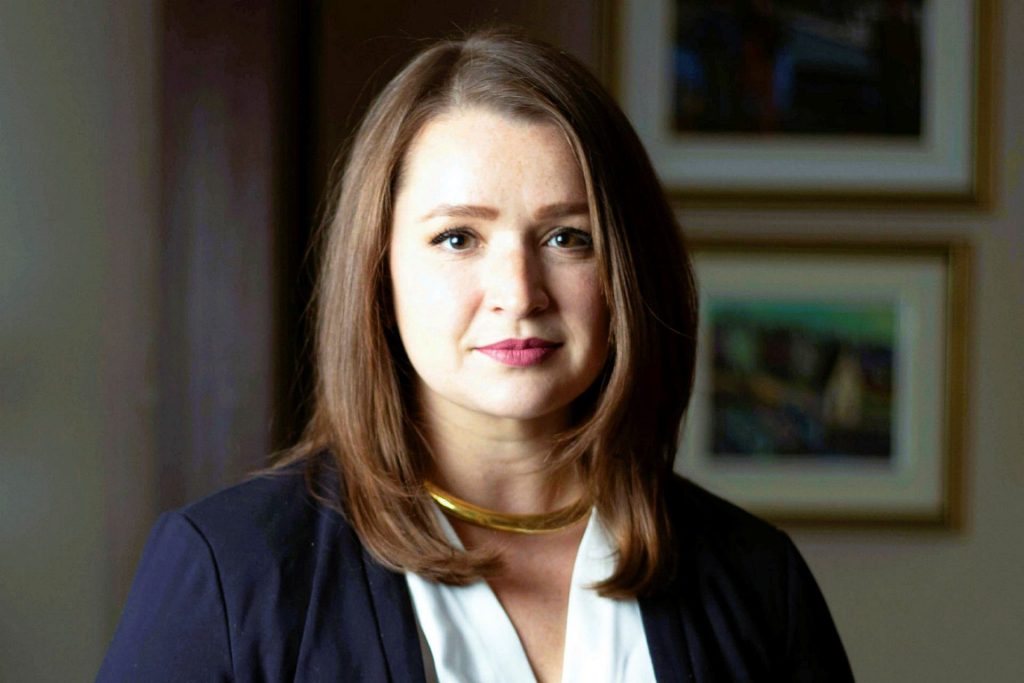Many provinces say no details from feds on striking pharmacare deals over a month after law passes

More than a month after the government’s pharmacare legislation received royal assent, multiple provinces and territories say they haven’t yet been engaged in formal negotiations or received substantive details from Ottawa.
The Hill Times reached out to every provincial and territorial government asking about the status of their pharmacare talks with Ottawa.
As of Nov. 15, at least four jurisdictions said there have not been any formal discussions with the Liberal government about deals stemming from the new legislation, while another two said there have only been “preliminary discussions.” One province said Ottawa has been “coming to the table” for talks, and British Columbia—which remains in caretaker mode following its recent provincial election—signed a memorandum of understanding with Ottawa days before its fall campaign.

Michael Law, Canada research chair in access to medicines at UBC’s School of Population and Public Health, described the government’s pharmacare act, which received royal assent on Oct. 10, as “vague,” leaving a large amount of detail to be fleshed out in negotiations with each province. The patchwork of different programs across Canada complicates the picture, which he said means the federal program must build upon very different scaffolding in each jurisdiction.
He expects Ottawa would be able to reach agreements before the next election with a few friendlier provinces, but the amount of work required makes it unlikely a majority of agreements will be signed.
Ontario ‘yet to receive any details’
Canada’s largest province told The Hill Times it has been waiting for months to have “substantive conversations” about concrete details.
“Ontario, like many provinces, has yet to receive any details on the federal government’s proposal since they tabled their bill in February,” said a spokesperson for Ontario PC Health Minister Sylvia Jones in an email.
Jones’ office said it is “prepared to work collaboratively with the federal government to reach a deal,” but pointed to the key hurdle identified by many policy experts and political players: a lack of detail in Ottawa’s pharmacare act.
“The legislation alone does not provide enough detail,” said the spokesperson. “Our hope is that we can begin substantive conversations as soon as possible [to] reach that goal.”
A spokesperson for the Saskatchewan government, led by Premier Scott Moe’s Saskatchewan Party, offered a similar view.
The province is “open to discussions,” but “the federal government has not yet formally engaged with Saskatchewan on these details,” said the spokesperson.
A spokesperson for Nunavut’s Department of Health, led by Minister John Main, also said that negotiations on a deal are not yet underway, but that it is “committed to working through implementation details to understand how such a program could best serve Nunavut’s unique healthcare needs.”
“The Government of Nunavut has yet to engage in formal talks regarding a pharmacare agreement specific to Bill C-64,” said the spokesperson. “However, Nunavut is interested in collaborative discussions to ensure alignment with existing programs.”
Alberta UCP Health Minister Adriana LaGrange had initially stated in February that her province would opt out of the program, before Premier Danielle Smith appeared to open the door to some comprise in March.
A statement from a spokesperson for LaGrange indicated that may still be the case, but the province is looking for something substantively different from what Ottawa has in the window right now.
“Alberta is willing to work with, and discuss ways, that the federal government can invest in Alberta’s existing comprehensive pharmacare programs and help us expand coverage to those who need it most,” said the spokesperson.

‘has yet to share its vision for the future of national pharmacare.’ The Hill Times photograph by Andrew Meade
“Unfortunately, the federal government has yet to share its vision for the future of national pharmacare beyond coverage for contraceptives and diabetes medications, and how pharmacare will be financially supported in the long term while respecting Alberta’s current offerings.”
Until Ottawa makes such a proposal, the spokesperson called instead for increased health-care funding. “Without meaningful consultation and true collaboration, Alberta will continue to call on the federal government to provide predictable, sustainable, unconditional health funding,” said the spokesperson.
‘Preliminary discussions’
A spokesperson for Prince Edward Island’s department of Health and Wellness—which is led by PC Health Minister Mark McLane—said there have been “preliminary discussions” but “P.E.I. is awaiting more detailed information from Health Canada on agreement parameters, including key concerns like provincial/territorial funding allocations.”
The spokesperson added it would be important to “determine how the federal program will interact with existing provincial drug programs.” P.E.I. is one of the provinces that already has a provincial pharmacare plan in place.
In New Brunswick, newly elected Liberal Premier Susan Holt met with Prime Minister Justin Trudeau (Papineau, Que.) on Nov. 12. According to CBC News, in remarks following the meeting Holt expressed interest in several federal programs—including the school food program and pharmacare—but said pharmacare will require more detailed discussions, meaning that it may take more time.
A spokesperson for the New Brunswick health ministry told The Hill Times there have been “preliminary discussions” on pharmacare.
Law said that reports like these indicate the Liberals face a tough road ahead to get most deals done before the next election.
“The fact that they’ve not even started discussions [in some provinces] doesn’t bode well for coming to a conclusion,” said Law.
He said it’s not uncommon for budget items requiring bilateral agreements to remain on the shelf for years. As an example, he pointed to the federal government’s drugs for rare diseases programs—launched in early 2023—which also requires bilateral deals. To date, B.C. is the only province to reach an agreement with Ottawa.
British Columbia and Manitoba lead the pack
Only two provinces appear to have been actively working with Ottawa to date—both led by Western NDP governments.
A spokesperson for Manitoba NDP Health Minister Uzoma Asagwara said that province is speaking with federal counterparts.
The passage of the pharmacare legislation is “good news for Manitobans, and we’ve been discussing this initiative with the federal government,” said the spokesperson. “Our government has been working hard to provide better access to healthcare in Manitoba and are happy that the federal government is coming to the table.”
Meanwhile, the B.C. government is in post-election caretaker mode until Nov. 18, meaning it cannot offer a substantive comment until that time. However, on Sept. 13—just days prior to entering B.C.’s writ period and before the pharmacare legislation became law—the NDP government entered into a memorandum of understanding with Ottawa to proceed with a pharmacare deal.
The governments for Yukon, Northwest Territories, Quebec, and Newfoundland and Labrador did not reply with comments to The Hill Times. Nova Scotia is presently in a provincial election campaign. The three political parties offered a range of responses, with the governing PCs, who are leading in the polls, stating that they “won’t rush this” if returned to government.

Holland’s office provides multiple statements on status of talks
In response to questions from The Hill Times about the status of talks, a spokesperson for Health Minister Mark Holland (Ajax, Ont.) said in a Nov. 14 statement provided prior to publication that the government has been “clear in its intention to reach agreements with all provinces and territories as soon as possible.” He did not provide specifics about timelines or which governments Ottawa was presently engaging to formally reach a deal.
The spokesperson said levels of funding and types of medications would be key points in the discussions. He pointed to the lists of contraceptives and diabetes medications that were released in February when the pharmacare legislation was tabled, saying these lists would serve as “a starting point for discussions and represent a minimum coverage level.”
The legislation also required the government to name an expert panel within 30 days of the bill becoming law. On Nov. 14, Holland’s office announced the panel members, tasked with delivering a report by Oct. 10, 2025.
Following publication, Holland’s office sent an additional comment on Nov. 15, saying “there have been conversations between the federal government and every province and territory on pharmacare. These meetings are productive and the work is ongoing to sign deals with each province and territory.”
As an example, the statement pointed to recent meetings “with health ministers across Atlantic Canada to talk about collaboration on health care, including pharmacare.”
Those comments were added to the story. Following publication of that update, Holland’s office reached out requesting a further update. It provided a third statement that said, “To be clear, we have initiated formal talks with all provinces and territories”—a claim that was not made in the first two statements, and is in stark contrast to comments provided by several jurisdictions.
Before updating, The Hill Times pressed the issue. It asked how the federal government accounted for the differences between its newest statement and the remarks in the story from multiple provinces and territories explicitly stating they have not received “any details,” there are no “formal” talks, they are awaiting “substantive conversations,” or there are only “preliminary discussions.”
Holland’s office then provided a fourth statement that dropped the word “formal,” stating, “The federal government is in talks with every province and territory on pharmacare.”
It said the federal government needs to “respect the confidentiality of our negotiations with provinces and territories,” but that “Minister Holland has discussed pharmacare with each of his provincial and territorial counterparts and is in the process of meeting with each province and territory specifically to discuss pharmacare.”
The statement added that Health Canada is in “direct contact” with each jurisdiction, and “has held detailed information sessions in which all provinces and territories were invited.”
‘Start getting to the table’: Richer
Former NDP staffer Mélanie Richer said it is “incredibly disappointing” to hear that detailed outreach to provinces like Ontario has not yet happened.

“They need to start getting to the table and having those conversations,” said Richer, who is now a principal at Earnscliffe Strategies.
However, she said “it’s not totally surprising” that most negotiations are not yet underway because the Liberals have shown a “total lack of understanding” of the day-to-day challenges Canadians face.
Richer said the messaging in recent Liberal ads focused strongly on health care, including pharmacare. She said it’s politically vital for the Liberals to deliver on pharmacare deals before the next campaign, otherwise “it’s just empty words.”
As for the NDP, Richer said the party is likely “paying attention to” the status of these deals because it’s important to their base and potential NDP voters, too. But she said it’s not likely to be “the one issue that’s either going to keep [the government in power] or not.”
Former Ontario PC staffer Carly Bergamini, who worked in the provincial health minister’s office, said the Liberal government appears to be a long way off from reaching many of the deals.

The legislation was only “the tip of the iceberg,” she said, because it was “really light on details,” and “now all of the hard work begins.”
Bergamini, who is now director of EnterpriseHealth, said the Ontario government has been left with “no further direction or feedback or details that the [federal] government’s providing.” She added Holland appears to be using the matter as a “partisan wedge,” which will make it harder to get a deal done.
Begamini also said the government’s recent ads make it vulnerable to criticism that it is not delivering on the messaging. “It’s a federal government that has continued to make promises, make commitments that they’re not fulfilling,” she said.

However, former Liberal staffer Carlene Variyan said it is a sound strategy for the government to focus first on provinces more likely to strike a deal, and use that to build momentum—an approach previously applied on other federal-provincial negotiations.
“They need to get a couple of deals signed with key provinces to start things off with some real momentum,” said Variyan, who is now associate vice-president at Summa Strategies.
Variyan said the government has been “very successful” when opting to “knock off a few big ones” first with the provinces.
“You sort of start to see other provinces who then don’t want to be left behind, and it creates additional pressure for the rest fall in line.”
Editor’s note: This story was updated on Nov. 15, 2024, to include additional comments from the Nunavut Department of Health and the office of Health Minister Mark Holland that were submitted after deadline. The headline was updated to clarify that many, but not all, provinces say they have not yet been provided specific details on reaching a pharmacare deal.
This story was updated again on Nov. 16, 2024, to include two additional statements from Holland’s office regarding the nature of the outreach that has taken place to date.
icampbell@hilltimes.com
The Hill Times






 LICENSING
LICENSING PODCAST
PODCAST ALERTS
ALERTS













